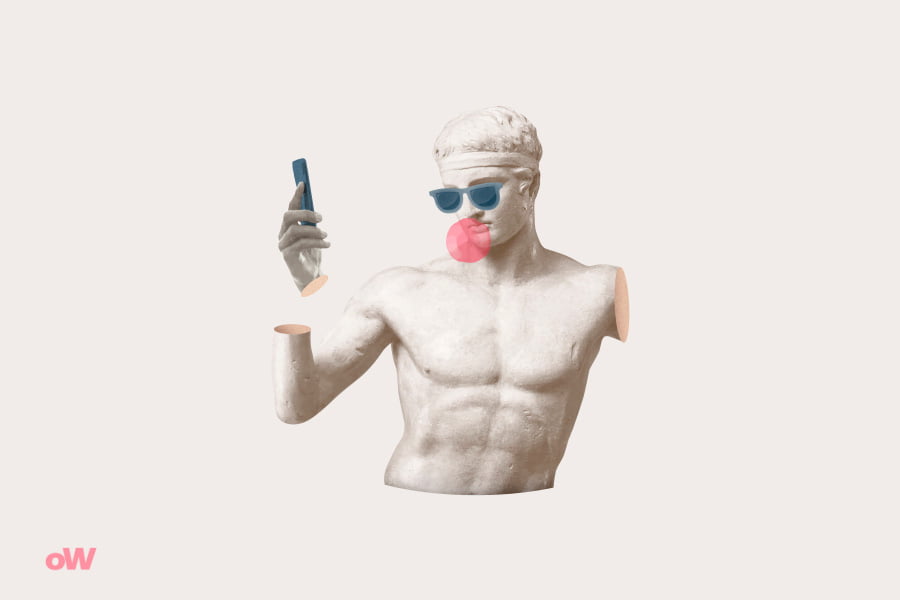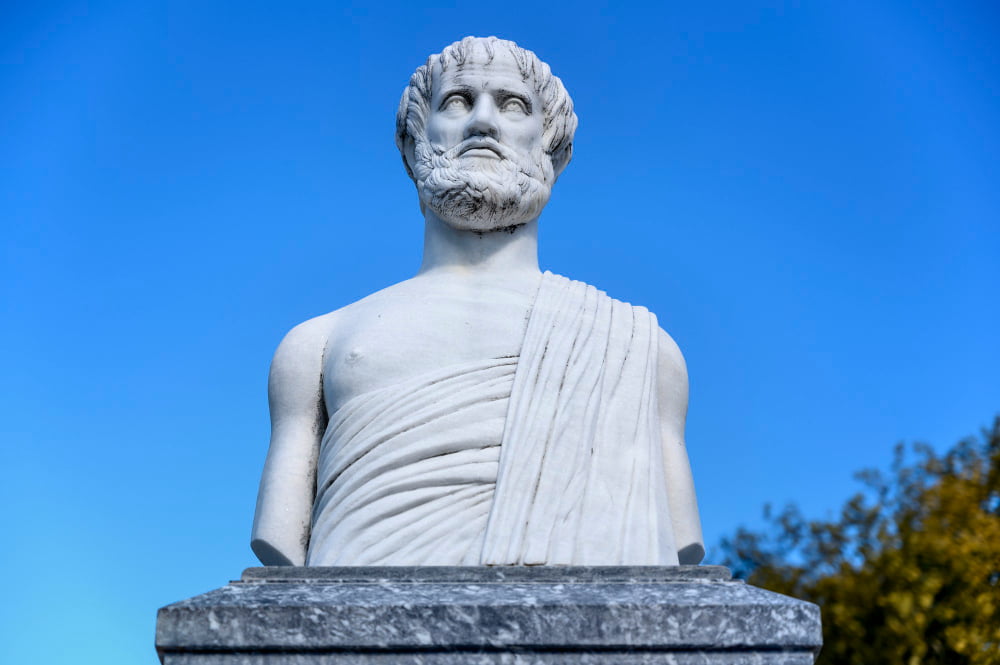Quiz: Which Philosopher Are You?

Have you ever caught yourself thinking that your reasoning about life is surprisingly in tune with ideas expressed thousands of years ago? Or perhaps, in a heated debate with friends, you’ve found yourself unwittingly quoting Nietzsche or Kant? Our quiz “Which Philosopher Are You?” invites you on a fascinating journey of self-discovery through the lens of humanity’s greatest minds. After all, sometimes we are Platonists, Cynics, or Existentialists without even suspecting it!
Philosophy: A Brief Look at Its Role in Shaping Humanity
Philosophy is not just an academic discipline buried in dusty volumes of university libraries. It is a living, pulsating force that has shaped our perception of reality, defined ethical norms, and set the vector for the development of civilizations over millennia.
From the Athenian schools of Plato and Aristotle, through medieval scholasticism, the Enlightenment, and to modern postmodernist currents – philosophical ideas invisibly but inevitably penetrate the fabric of society. They determine how we build states, create laws, conduct scientific research, and even how we relate to our own existence.
When Descartes proclaimed his famous “Cogito ergo sum” (“I think, therefore I am”), he didn’t just express an abstract idea – he redefined the understanding of human consciousness and ushered in a new era of rationalism. When Nietzsche declared the “death of God,” he anticipated the cultural shifts of the 20th century that we are still experiencing today.

Why Do We See Ourselves in Philosophers?
An amazing paradox: questions we consider unique to our time and our lives were formulated and explored by thinkers of the past. Why are we so drawn to the possibility of finding “our” philosopher?
First and foremost, it’s a search for confirmation of our own intuitions. When we discover that our thoughts resonate with the ideas of Kant or Sartre, we feel a kind of intellectual validation – we are not alone in our thinking, and our ideas have weight in a historical context.
Additionally, philosophers offer us a conceptual language for articulating our own thoughts. They give us tools for understanding ourselves and the world around us, elevating vague sensations to the level of clear concepts.
Finally, identifying with a certain philosophical direction helps us structure our worldview. If you discover stoic traits in yourself, it can give you a new perspective on life’s difficulties. If you are close to existentialism, it will help you better realize your own freedom and responsibility.
How Does This Philosophical Quiz Work?
Our quiz is not just a set of random questions. It’s a carefully thought-out system based on analysis of key philosophical positions from various schools and thinkers.
By answering the questions, you reveal your attitude toward fundamental categories of being: epistemology (how do we obtain knowledge?), ethics (what is good and evil?), metaphysics (what is the nature of reality?), politics (how should society be organized?), and existential questions (what is the meaning of life?).
The quiz algorithm analyzes your answers and compares them with the positions of various philosophers, identifying the greatest coincidences. The results show not only your “philosophical double,” but also the percentage ratio of closeness to various thinkers, giving a multifaceted picture of your philosophical profile.
It’s important to understand: the goal of the quiz is not to force you into a rigid framework of a certain school, but to give you a reference point for further philosophical self-knowledge and, possibly, inspire you to study ideas that resonate with your inner world.

Philosophers Featured in the Quiz
Our quiz features thinkers from different eras and philosophical traditions, from antiquity to the 20th century, from Western to Eastern thought. Each of them embodies a unique view of the world, ethics, and human existence, reflecting a wide spectrum of possible worldviews with which you may discover resonance. Getting acquainted with their ideas is a journey through the diversity of human thought.
Socrates (469-399 BCE)
Famous for his dialectical method of questioning, Socrates called for self-knowledge (“Know thyself”) and challenging authorities. If you value inner wisdom more than external knowledge and believe that true knowledge begins with acknowledging your own ignorance – the spirit of this Athenian sage may live within you.
Immanuel Kant (1724-1804)
Author of the “Critique of Pure Reason” and the categorical imperative in ethics. If you adhere to strict moral principles, believe that actions should be evaluated by intention rather than result, and believe in rational analysis as the basis of knowledge – you may be close to Kantianism.
Friedrich Nietzsche (1844-1900)
A radical critic of traditional morality and religion who proclaimed the “revaluation of all values.” If you question conventional truths, strive for self-overcoming, and believe that everyone should create their own values – perhaps you are the spiritual heir of this controversial thinker.
Simone de Beauvoir (1908-1986)
A pioneer of existential feminism who explored questions of freedom, gender, and interpersonal relationships. If you’re concerned with questions of authentic being within social frameworks and believe that personality is formed through actions rather than predetermined – you may be close to de Beauvoir’s philosophy.
Albert Camus (1913-1960)
Explorer of the concept of absurdity and rebellion against the meaninglessness of existence. If you believe that in a world without inherent meaning, humans must create meaning themselves and live authentically despite the absurd – you may discover that you share the worldview of this French existentialist.
Confucius (551-479 BCE)
Creator of an ethical-philosophical system based on harmony, hierarchy, and ritual. If you value traditions, family values, and believe that social order begins with personal self-improvement – perhaps the spirit of Confucian wisdom lives within you.

Conclusion
Philosophy is not an abstract mind game but a living guide to action. Discovering “your” philosopher can become not just an amusing revelation but a turning point in self-knowledge, capable of changing your view of the world and your place in it.
Our “Which Philosopher Are You?” quiz is an invitation to dialogue with humanity’s greatest minds. It’s a chance to learn that your everyday thoughts and intuitions have deep historical roots and philosophical foundations.
Are you ready to find out which of the great thinkers you share a worldview with? Take our quiz and, perhaps, this will be the first step in your own philosophical journey. After all, as Socrates said, “The unexamined life is not worth living.”
Questions Overview
- Question everyone's belief about purpose, including your own.
- Discuss the eternal recurrence and will to power.
- Emphasize the importance of rites and good moral conduct.
- Speak about freedom and existentialism.
- By asking a series of probing questions.
- By challenging the underlying moral and societal values.
- By seeking a middle ground and harmony.
- By exploring the existential ramifications.
- A walk in the Agora, chatting with fellow Athenians.
- A solitary mountain hike reflecting on life’s tragedies.
- Meditation and reflection on ancient proverbs.
- Writing feminist essays over a cup of coffee.
- A hemlock-filled chalice, just in case.
- A mustache and intense gaze.
- A compass pointing to ethical north.
- An iconic French beret.
- I know that I know nothing.
- God is dead, and we have killed him.
- Study the past if you would define the future.
- One is not born, but rather becomes, a woman.
- A desire to question everything.
- An urge to challenge and disrupt.
- A duty to impart wisdom and maintain order.
- The weight of patriarchal structures.
- Hold a public discourse.
- Write poetic aphorisms.
- Offer guidance to the youth.
- Advocate for gender equality.
- An owl, the symbol of wisdom.
- A lone eagle soaring above the mountains.
- A loyal and disciplined dog.
- A fierce, independent cat.
- Question the nature of suffering.
- See it as a part of life's eternal cycle.
- Reflect on ancient teachings for guidance.
- Ponder on the human condition and its freedoms.
- Ancient Athens.
- The Swiss Alps for some solitude.
- A tranquil temple in China.
- Paris in the 1940s.
- Unwavering curiosity.
- Raw and unfettered truth.
- Balance and harmony.
- Radical freedom.
- Underneath an olive tree.
- In a dimly lit, antique study.
- Beside a serene pond.
- At a bustling Parisian cafe.
- "The unexamined life is not worth living."
- "He who has a why to live can bear almost any how."
- "It does not matter how slowly you go as long as you do not stop."
- "One is not born a genius, one becomes a genius."
- A simple glass of water.
- Wine, deep and robust.
- Tea, brewed to perfection.
- French espresso, strong and dark.
- Debating philosophy under the stars.
- Writing passionately by candlelight.
- Sharing wisdom with the next generation.
- Attending a play or reading feminist literature.






